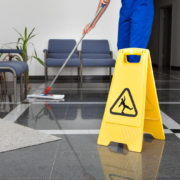If you drive Mississippi’s roads, you likely see a tremendous number of trucks carrying cargo. You will see tractor trailers with carefully strapped down loads and other trucks with their cargo unsecured and blowing out of the back of the truck behind them. I’ve even seen two men moving a mattress by holding it to the roof the car with just their arms out the window. With loose cargo comes accidents, some of them deadly.
If you or a loved one were injured as a result of loose cargo, you must find experienced counsel to help you attain your fair share of compensation for your loss of income and injury. Barrett Law has the experience to help you if you have been injured. Contact us now at (800) 707-9577.
The Complexity of Loose Cargo Accidents
A 2015 federal study estimated that as many as 400 deaths across the United States are the result of unsecured loads – not only from commercial trucks, but smaller pick-up trucks and other passenger vehicles as well. The most common type of accident is caused by a truck carrying a load that is insufficiently attached to the truck’s bed. While the attachment may be sufficient when the truck is at rest or moving straight down a highway, it may be insufficient to deal with the extreme physics involved when the truck stops short or swerves quickly. Cargo that comes loose can hit trailing vehicles, often doing extreme damage.
Another type of accident occurs when cargo becomes loose and enters the road, causing other cars to swerve or otherwise rapidly change their lanes. An accident ensues from the rapid movement of the other cars. While this sort of accident may not involve the cargo actually impacting with other motorists, the high speed collision with other cars can be just as harmful.
One problem with loose cargo accidents, and a primary reason that you will need an experienced personal injury lawyer if you are involved in one, is that it is rarely clear who is liable for the accident. You may be thinking, “the truck hauling the runaway cargo is liable, aren’t they?” That is a reasonable guess, but it is rarely that straightforward. Imagine an accident where a bulldozer breaks the chains holding it to the bed of tractor trailer and falls onto the roadway. The car in front of you swerves, pushing you off the road into a steep ditch. Your car rolls over and you have, thankfully, only soft tissue injuries to your neck—whiplash. Your car is destroyed, you are out of work for two weeks, and you need to be compensated.
In that example, the trucking company likely hires an independent contractor to drive their truck. They hire a third-party contractor to load the bulldozer onto the tractor trailer. All of those parties will blame the other motorist for swerving and causing your accident, and everyone will say that the State caused your neck injury by making the ditch alongside the highway too steep. The State likely used a third-party contractor to dig the ditch, however, so this blame cycle just goes on and on.
The point of that story is that loose cargo accidents are never straightforward and require the expert help of an experienced personal injury lawyer to prevent all of the parties involved in causing your injury from shirking their responsibility.
What Should You Do If You or a Loved One Has Been Injured in a Scaffolding Accident?
If you or a family member were injured in a loose cargo trucking accident, you might have a viable personal injury claim for the time you have been out of work, the costs of your treatment and rehabilitation, your pain and suffering, and other damages. Let experienced counsel take care of organizing your bills, attaining statements from expert witnesses, and dealing with the other parties’ attorneys. These are just a few of the critical, complex tasks that a personal injury attorney will handle for you while you concentrate on healing and getting back on your feet again.
Call Barrett Law now, an experienced Mississippi personal injury law firm, to represent you if you have suffered an injury due to a scaffolding accident. Contact us now at (800) 707-9577.


